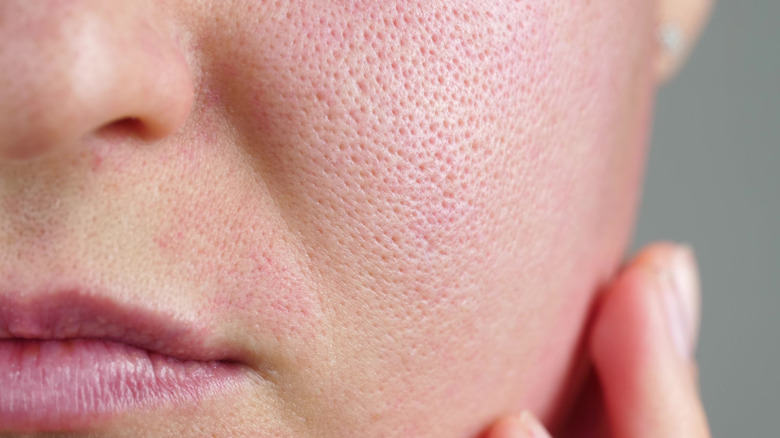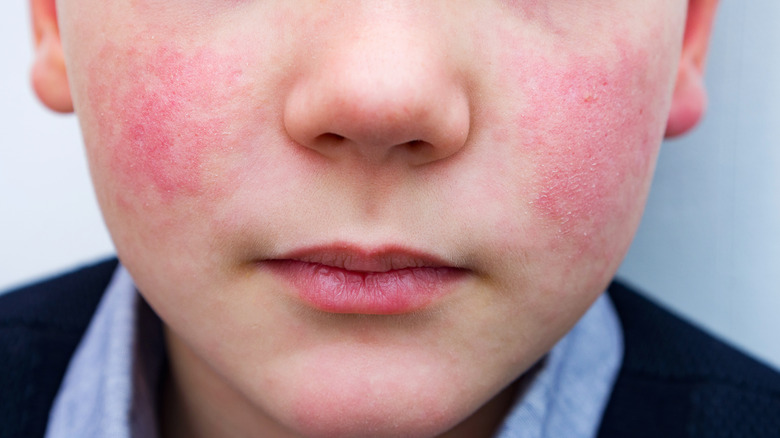If Your Cheeks Are Always Red, It Could Be A Sign Of This
You probably blush from time to time, but if you're blushing well beyond the occasional embarrassing moment, it may be worth taking a closer look at those rosy cheeks.
Our cheeks redden when a boost of blood flow is directed to the area (via Healthline). When this happens, blood vessels expand, which can lead to reddening or darkening of the skin, or skin that is warm to the touch. All of these symptoms make up what's known as skin flushing. According to Healthline, natural blushing is a bodily response to a heightened emotion, such as anger, embarrassment, stress, or anxiety. Flushed cheeks also can occur as a response to physical stimuli, such as excessively hot outdoor temperatures or engaging in rigorous exercise (via Medical News Today).
If you notice that your cheeks remain red even after the heightened emotion has passed or your body has cooled down, it could be a sign of a medical condition.
Managing chronically red cheeks
A common underlying cause of chronically red cheeks is a skin condition known as rosacea. Rosacea is the result of the body's immune system responding to pathogens on the skin (via Byrdie). "We all have microorganisms living on our skin, and they help keep our skin barrier healthy by fighting potentially harmful bacteria," Board-certified dermatologist Dr. Dendy Engelman told Byrdie. "However, some people's immune systems treat these microorganisms as potential threats and fight them, resulting in rosacea."
While prescription creams and oral drugs can treat more severe cases of rosacea, there are self-care practices you can do to help control symptoms of milder cases and prevent flare-ups (via Mayo Clinic). For one, use a fragrance-free, non-soap cleanser on your face twice daily. Remember to dry the face gently and always moisturize afterwards. You'll also want to avoid frequently touching your face. Experts at the Mayo Clinic also recommend applying sunscreen with an SPF of at least 30 liberally before going outdoors.
Finally, if you're trying to manage your rosacea, avoid common triggers."Common rosacea triggers include emotional stress, alcohol, spicy foods, sun exposure, hot or cold weather, and heated beverages," board-certified physician associate Nina Sedighi told Byrdie.

